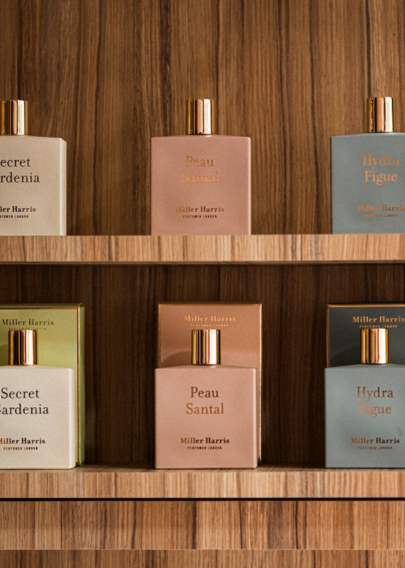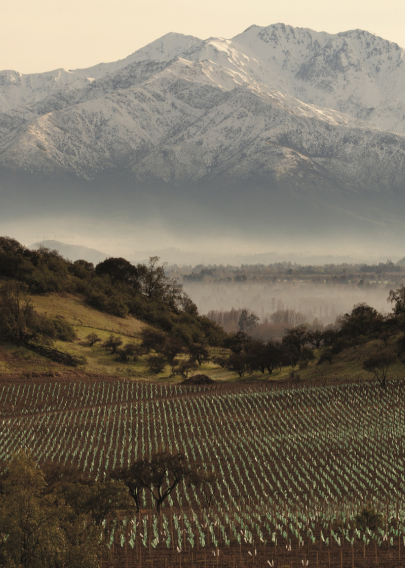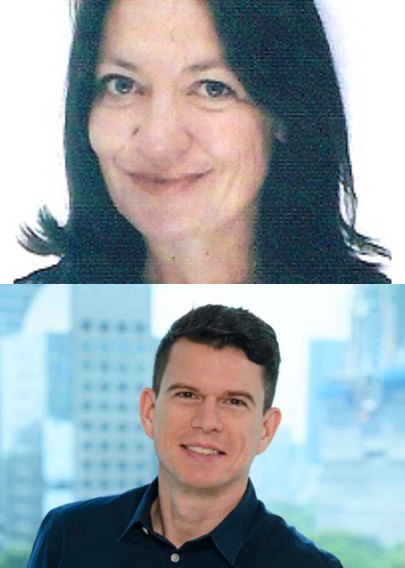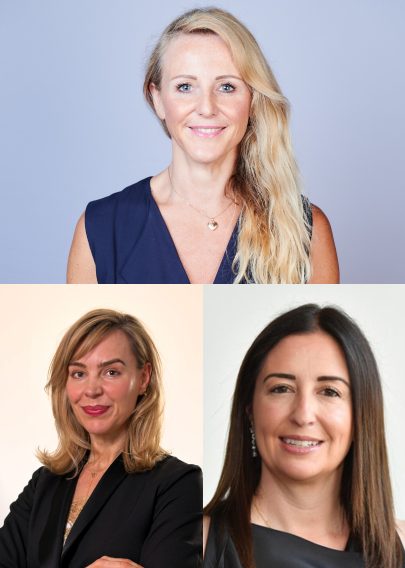Le Grand Bellevue is the only Swiss hotel to date to have achieved the Butterfly Mark and is located in the heart of Gstaad in Switzerland. The hotel recertified with the Butterfly Mark in March 2023 and today we hear from their team to find out a little more about the hotel, its history, their ethos and more broadly their thoughts on how the worlds of luxury and sustainability collide, particularly whilst working within the hospitality space…
. . .
Hello! Congratulations on becoming re-certified with the Butterfly Mark for the second time recently. Could you tell us a bit about the work you have been doing behind the scenes to progress Le Grand Bellevue’s sustainability journey?
We have been improving our current sustainable actions as well as implementing new ones, which include bettering employee satisfaction and approaching our main supplier regarding their code of conduct. We have worked to draft policy, define environmental strategies, conduct measurements of energy and carbon emissions and set ambitious reduction targets. This was an intensive and time-consuming process to think about the various aspects of our ESG+ performance. Overall we are working on continually improving transparency both internally and externally on our ESG strategies.
Can you tell us a bit about the hotel as we know it now, how that has changed and how it came to be the five-star facility it is today?
Opened in 1912, Le Grand Bellevue is Gstaad’s oldest palace hotel and was originally a Cure House & Spa. It is renowned as one of the region’s most prestigious hotels and has been part of the fabric of Gstaad for generations. Dedicated to preserving and enhancing its reputation as the epitome of Alpine excellence, the owner Daniel Koetser has brought new energy and vitality to this grand palace which launched in 2014, fashioning a place where creative sophistication and Swiss elegance meet the effortless warmth, luxury and creative spirit of a country house.
What is at the heart of your brand ethos?
Honesty and making sure we are having fun is the fundamental base for a successful running of a hotel. We also have brand values that feed into our everyday and across everything we do:
- We look after our guest’s interests.
- We are one unified team.
- If we do it, we do it right.
- We never say “no”!
- We are happy – it’s contagious.
- We are luxurious, elegant but always modest.
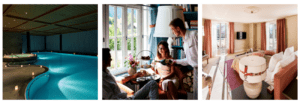 What does luxury mean to Le Grand Bellevue as a hotel and as a brand?
What does luxury mean to Le Grand Bellevue as a hotel and as a brand?
Indulgence is an essential luxurious part of the experience of staying at Le Grand Bellevue. At our core is a belief in the importance of superior quality and excellent service. Providing attention to detail is key, from the luxurious designer fabrics used to upholster the furniture, to the quality of local ingredients used in everything from cheese fondue to our famous hot chocolate. We’ll inspire you to experience the best of Gstaad and keep you coming back for more. Furthermore, luxury for us is being surrounded and accepted by nature’s majesty around us, in the unique and magical Swiss Alps.
The world-renowned Michelin star chef, Massimo Bottura, is returning to Le Grand Bellevue this April to take over the kitchen for a limited time only. Can you tell us a bit about this special partnership you have with him?
We are beyond lucky and grateful that Massimo is a good friend of our chef Francesco De Bartolomeis, which brings us the luxury to partner with such a unique icon, this will be the fourth time Massimo has taken over the LEONARD’s kitchen here in Gstaad. Massimo takes inspiration comes from the world around him – from art, music, slow food and fast cars. In 2016, Massimo founded the non-profit association Food for Soul to empower communities to fight against food waste in the interest of social inclusion and individual wellbeing. We are delighted to support him and his wider projects by introducing him to our guests.
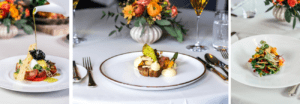 In relation to food specifically, can you tell us how the world of food and sustainability collide?
In relation to food specifically, can you tell us how the world of food and sustainability collide?
The professional, luxury cuisine of the future is sustainable, regional, seasonal, purist, simple – but with quality. We see climate change, generational change, animal welfare and pricing as the biggest challenges. In general, it is undeniable that we are witnessing a global shift toward sustainable and eco-friendly hospitality practices and the hotel sector plays a significant role in the world of food and sustainability, here are a few measures we take in order to ensure we are minimising our impact on the planet:
- We use 40% locally sourced food which reduces the carbon footprint needed to transport food from different countries and in turn we are able to support local farmers and businesses
- One of the largest issues we face in the hospitality industry is food waste, we have implemented waste reduction strategies such as composting, donating leftover food, and using leftovers in creative ways (such as surprise menus)
- We ensure our seafood comes from sustainable sources by collaborating with suppliers that follow sustainability guidelines or have third part accreditations
- Our kitchen is also increasing its plant-based food options to cater to the rising demand, this transition reduces greenhouse gas emissions, and leads to a healthier and environmentally friendly diet
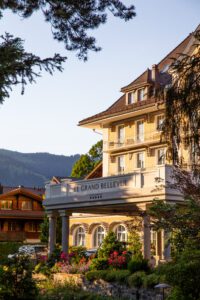 Being in the hospitality space, particularly one of such high demand and quality, what are some of the challenges that you face in relation to sustainability?
Being in the hospitality space, particularly one of such high demand and quality, what are some of the challenges that you face in relation to sustainability?
Over the past decade, we have found that consumer priorities have already evolved – and continue to do so. It goes without saying that responsible use of energy resources and careful use of raw materials are particularly urgent. Standardised processes, time-independent pre-production, top-quality in-house convenience and regional sourcing all play a key role too in meeting the quality needs of our guests. A challenge certainly comes from the kitchen as it must meet the needs of guests, where regionality, proximity and transparency are required, as well as been top-quality cuisine. Our future kitchen must become more modular and flexible, especially when our restaurant concept changes, for events, or simply generalising new processes. In addition, we would like to have more options for growing food in the kitchen such as hydroponics, sprout cabinets, mushroom cultures and herb gardens amongst others. What would help too is a disposal system should be invented that separates the waste by category and delivers it to the appropriate containers without additional effort and to avoid contamination. Together with a system that weighs waste and analyses it so that the data can proactively help hotels and all hospitality businesses to reduce waste.
What’s next for Le Grand Bellevue?
With the Butterfly Mark certification from Positive Luxury, we will start to get the Swissstainable certification. The sustainability programme pursues the goals of promoting Swiss tourism, together with the stakeholders for a more sustainable development of Switzerland as a tourist destination, and to make the sustainability efforts and activities of the tourism service providers more visible to the guests. With Positive Luxury the first focus over the next two years will be improving our score within the social pillar, focusing on employee satisfaction and benefits.
LEARN MORE ABOUT BUTTERFLY MARK CERTIFIED LE GRAND BELLEVUE
< Back
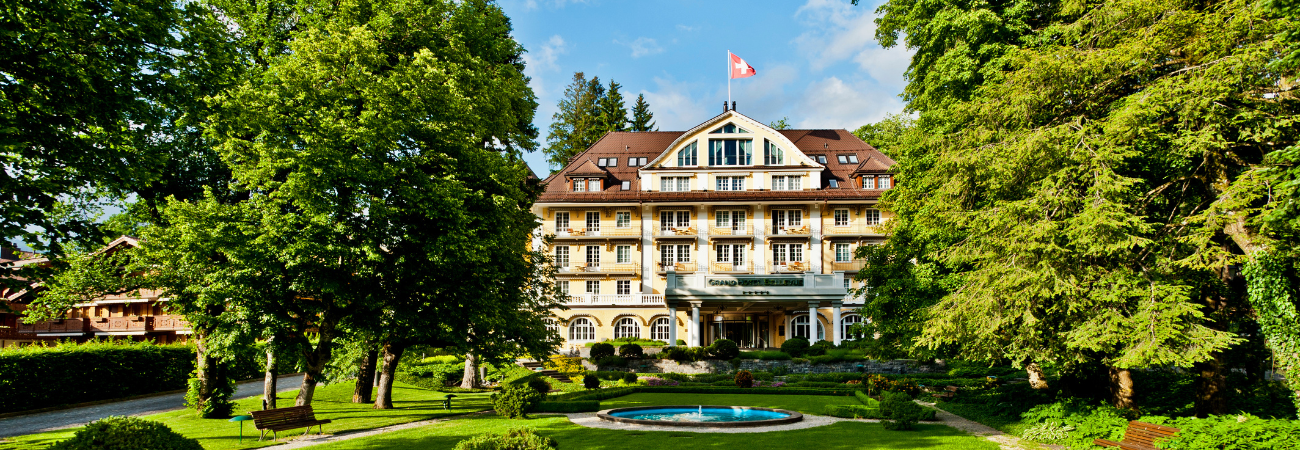
 What does luxury mean to Le Grand Bellevue as a hotel and as a brand?
Indulgence is an essential luxurious part of the experience of staying at Le Grand Bellevue. At our core is a belief in the importance of superior quality and excellent service. Providing attention to detail is key, from the luxurious designer fabrics used to upholster the furniture, to the quality of local ingredients used in everything from cheese fondue to our famous hot chocolate. We’ll inspire you to experience the best of Gstaad and keep you coming back for more. Furthermore, luxury for us is being surrounded and accepted by nature’s majesty around us, in the unique and magical Swiss Alps.
The world-renowned Michelin star chef, Massimo Bottura, is returning to Le Grand Bellevue this April to take over the kitchen for a limited time only. Can you tell us a bit about this special partnership you have with him?
We are beyond lucky and grateful that Massimo is a good friend of our chef Francesco De Bartolomeis, which brings us the luxury to partner with such a unique icon, this will be the fourth time Massimo has taken over the LEONARD’s kitchen here in Gstaad. Massimo takes inspiration comes from the world around him – from art, music, slow food and fast cars. In 2016, Massimo founded the non-profit association Food for Soul to empower communities to fight against food waste in the interest of social inclusion and individual wellbeing. We are delighted to support him and his wider projects by introducing him to our guests.
What does luxury mean to Le Grand Bellevue as a hotel and as a brand?
Indulgence is an essential luxurious part of the experience of staying at Le Grand Bellevue. At our core is a belief in the importance of superior quality and excellent service. Providing attention to detail is key, from the luxurious designer fabrics used to upholster the furniture, to the quality of local ingredients used in everything from cheese fondue to our famous hot chocolate. We’ll inspire you to experience the best of Gstaad and keep you coming back for more. Furthermore, luxury for us is being surrounded and accepted by nature’s majesty around us, in the unique and magical Swiss Alps.
The world-renowned Michelin star chef, Massimo Bottura, is returning to Le Grand Bellevue this April to take over the kitchen for a limited time only. Can you tell us a bit about this special partnership you have with him?
We are beyond lucky and grateful that Massimo is a good friend of our chef Francesco De Bartolomeis, which brings us the luxury to partner with such a unique icon, this will be the fourth time Massimo has taken over the LEONARD’s kitchen here in Gstaad. Massimo takes inspiration comes from the world around him – from art, music, slow food and fast cars. In 2016, Massimo founded the non-profit association Food for Soul to empower communities to fight against food waste in the interest of social inclusion and individual wellbeing. We are delighted to support him and his wider projects by introducing him to our guests.
 In relation to food specifically, can you tell us how the world of food and sustainability collide?
The professional, luxury cuisine of the future is sustainable, regional, seasonal, purist, simple – but with quality. We see climate change, generational change, animal welfare and pricing as the biggest challenges. In general, it is undeniable that we are witnessing a global shift toward sustainable and eco-friendly hospitality practices and the hotel sector plays a significant role in the world of food and sustainability, here are a few measures we take in order to ensure we are minimising our impact on the planet:
In relation to food specifically, can you tell us how the world of food and sustainability collide?
The professional, luxury cuisine of the future is sustainable, regional, seasonal, purist, simple – but with quality. We see climate change, generational change, animal welfare and pricing as the biggest challenges. In general, it is undeniable that we are witnessing a global shift toward sustainable and eco-friendly hospitality practices and the hotel sector plays a significant role in the world of food and sustainability, here are a few measures we take in order to ensure we are minimising our impact on the planet:
 Being in the hospitality space, particularly one of such high demand and quality, what are some of the challenges that you face in relation to sustainability?
Over the past decade, we have found that consumer priorities have already evolved – and continue to do so. It goes without saying that responsible use of energy resources and careful use of raw materials are particularly urgent. Standardised processes, time-independent pre-production, top-quality in-house convenience and regional sourcing all play a key role too in meeting the quality needs of our guests. A challenge certainly comes from the kitchen as it must meet the needs of guests, where regionality, proximity and transparency are required, as well as been top-quality cuisine. Our future kitchen must become more modular and flexible, especially when our restaurant concept changes, for events, or simply generalising new processes. In addition, we would like to have more options for growing food in the kitchen such as hydroponics, sprout cabinets, mushroom cultures and herb gardens amongst others. What would help too is a disposal system should be invented that separates the waste by category and delivers it to the appropriate containers without additional effort and to avoid contamination. Together with a system that weighs waste and analyses it so that the data can proactively help hotels and all hospitality businesses to reduce waste.
What’s next for Le Grand Bellevue?
With the Butterfly Mark certification from Positive Luxury, we will start to get the Swissstainable certification. The sustainability programme pursues the goals of promoting Swiss tourism, together with the stakeholders for a more sustainable development of Switzerland as a tourist destination, and to make the sustainability efforts and activities of the tourism service providers more visible to the guests. With Positive Luxury the first focus over the next two years will be improving our score within the social pillar, focusing on employee satisfaction and benefits.
Being in the hospitality space, particularly one of such high demand and quality, what are some of the challenges that you face in relation to sustainability?
Over the past decade, we have found that consumer priorities have already evolved – and continue to do so. It goes without saying that responsible use of energy resources and careful use of raw materials are particularly urgent. Standardised processes, time-independent pre-production, top-quality in-house convenience and regional sourcing all play a key role too in meeting the quality needs of our guests. A challenge certainly comes from the kitchen as it must meet the needs of guests, where regionality, proximity and transparency are required, as well as been top-quality cuisine. Our future kitchen must become more modular and flexible, especially when our restaurant concept changes, for events, or simply generalising new processes. In addition, we would like to have more options for growing food in the kitchen such as hydroponics, sprout cabinets, mushroom cultures and herb gardens amongst others. What would help too is a disposal system should be invented that separates the waste by category and delivers it to the appropriate containers without additional effort and to avoid contamination. Together with a system that weighs waste and analyses it so that the data can proactively help hotels and all hospitality businesses to reduce waste.
What’s next for Le Grand Bellevue?
With the Butterfly Mark certification from Positive Luxury, we will start to get the Swissstainable certification. The sustainability programme pursues the goals of promoting Swiss tourism, together with the stakeholders for a more sustainable development of Switzerland as a tourist destination, and to make the sustainability efforts and activities of the tourism service providers more visible to the guests. With Positive Luxury the first focus over the next two years will be improving our score within the social pillar, focusing on employee satisfaction and benefits.

